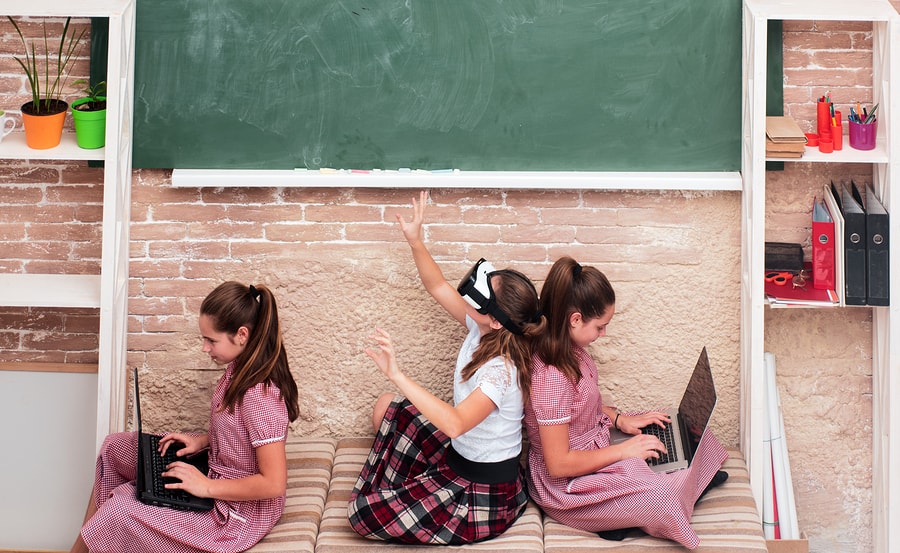Research led by Google explains how the educational experience will transform in the coming years. Technological influence in classrooms is going to increase, which will demand greater support and engagement from educational institutions, teachers, and parents regarding students’ devices use.
The Future of the Classroom report, launched by Google for Education alongside Canvas8 —consultant in the analysis of perceptions, trends, and behaviors— conducted in-depth interviews, reviewed specialized publications and analyzed data from surveys and research from thirteen countries. Results are synthesized in eight trends that will influence learning interactions around the world.
-
Digital Responsibility
There is widespread concern about technology use in students, inside and outside educational spaces. For example, France prohibits smartphones in classrooms. Researchers extoll the need for schools and parents to help students develop healthier and self-regulated behaviors regarding the use of different technological tools, rather than taking devices away from their hands.
-
Computational Thinking
The researchers state that the study of STEM disciplines at all educational levels must escalate. The jobs of the future will require the development of skills such as creativity, problem-solving and critical thinking, to name a few, which are related to the study of Science, Technology, Engineering, or Math.
As an example, in Sweden since the summer of 2008, coding has been a subject taught in primary education.
-
Collaborative Classrooms
Classrooms will cease to be static and their elements and design will favor interaction between students and teachers. Research indicates that the architecture of educational spaces positively affects up to 25% of students academic progress in a school year.
It is not necessary to demolish schools to build new flexible and adaptive classrooms. Rearranging and experimenting with the actual elements and spaces in the class can produce significant benefits.
-
Innovative Pedagogy
Teachers will be agents of change that will detonate new forms of instruction supported by technology. The challenge is to ensure that instructors save time with the automation of many of their routine tasks to concentrate on transforming and polishing teaching strategies.
Given teachers long working hours and the overwork, it would seem impossible to generate new educational strategies. However, support from their institutions to improve day-to-day duties can motivate educators to experiment with different learning tactics. As well as the development of technology to reduce the time that administrative tasks take, and to facilitate the creation of engaging content.
-
Life Skills and Workforce Preparation
A more holistic view of education is necessary so that students at all levels develop skills, attitudes, and ways of thinking that allow them to be successful when integrating into the workforce.
According to the report, the development of social-emotional skills or values such as empathy, as well as the promotion of digital skills, are equally important.
-
Student-led Learning
Canvas8 and Google for Education specialists see more autonomy of students in their learning processes. Learners’ proactivity and creativity, with the help of adaptive education systems or pedagogical strategies, will yield more student decision-making when choosing what content or elements of the educational programs to work with.
-
Connecting Guardians and Schools
To ensure better educational outcomes, parents must have a closer relationship with and commitment to their children activities. The current lifestyle of many tutors limits collaboration time. However, technology can support families with these tasks.
Likewise, educational institutions will have to generate straightforward conducts for parents to commit themselves effectively to the education of their children.
-
Emerging technologies
Educational experiences will rely more on emerging technologies such as AI, VR or AR, which enhance the effectiveness of educational programs.
Researchers conclude that education is evolving so that students are more connected in their lives, collaborate more in class, and prepared for their future. Technology and pedagogy must work together to achieve educational success. Educational institutions must empower teachers and must ensure to equipping them with the necessary tools to improve their lessons, create fluid learning ecosystems, and transform the classrooms into innovative learning spaces.
Check out the findings of the Google for Education report here.
This article from Observatory of the Institute for the Future of Education may be shared under the terms of the license CC BY-NC-SA 4.0 
)
)


)